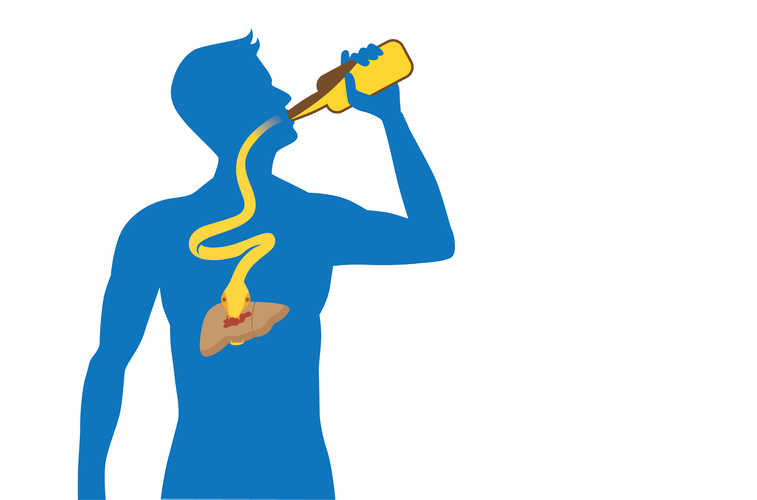Understanding these potential complications is crucial for effective management and prevention. This is especially true when you want to enjoy social events or relax with a drink. In cases where a person drinks even when he is not feeling well or when his body has already developed an addiction to alcohol, this is when one can take action.

Outpatient Alcohol Rehab in Columbus, Ohio: Definition, How it Works, Types, Benefits, Treatment Approaches, Cost
- Although alcohol allergies (as opposed to intolerances) are uncommon, they represent a serious threat to your health.
- While there’s no cure, there are steps you can take to manage your symptoms and enjoy alcohol in moderation.
- We combine personalised nutrition guidance, lifestyle counselling, and pharmacological support to help patients manage their symptoms effectively.
- They’ll add a drop of allergen extract to the pricked or scratched area.
This specific disorder arises from an issue with the enzyme responsible for metabolizing alcohol (ALDH2). When people with alcohol intolerance consume even small amounts of alcohol (ethanol), they experience adverse reactions. It is mainly caused by genetics; individuals with this condition lack enough of the enzyme ALDH2, which breaks down alcohol. Without sufficient ALDH2, toxic byproducts like acetaldehyde build up, causing adverse reactions. Notably, nearly 20% of adults in Ohio aged 18 and over are binge drinkers, indicating a rising what is alcoholism trend in alcohol abuse, which worsens symptoms for those with intolerance.
Why am I Suddenly Sensitive to Alcohol?
- Alcohol intolerance can happen the first time you drink alcohol, or it may come on suddenly later in life.
- This can help alleviate any potential feelings of pressure or judgment in social settings.
- A mild intolerance to alcohol or a particular ingredient in alcoholic drinks won’t usually require a trip to the doctor.
- For those with an alcohol allergy, caution is necessary to avoid all forms of exposure to the allergen.
- The most effective way to manage alcohol intolerance involves specific lifestyle changes, with complete avoidance of alcohol being the primary step.
Work closely with healthcare providers to develop an individualized treatment plan that addresses your alcohol intolerance triggers and optimizes your overall well-being. Regular follow-ups and open communication with https://www.josealvescontabilidade.com.br/2025/09/12/what-to-do-after-a-relapse-5-key-steps-arts/ your healthcare team to monitor progress and make necessary adjustments to your treatment approach. Antihistamines alleviate symptoms of histamine sensitivity, such as facial flushing, itching, and skin rashes, after consuming alcohol. Undergo testing under the guidance of qualified healthcare professionals to ensure accurate diagnosis and appropriate management of alcohol intolerance. For example, rashes or hives may last for a day or more, and gastrointestinal distress may linger until the alcohol is fully processed by the body. If you have an underlying medical condition, symptoms may be more severe and prolonged.
Microplastics in Alcohol: A Hidden Risk for ALDH2 Deficient Drinkers
Avoid binge drinking or excessive alcohol consumption, as it worsens symptoms and long-term health risks. Common triggers include certain types of wine, beer, or spirits that contain high levels of histamine, sulfites, or other compounds that you are sensitive to. Opt for lower-alcohol or alcohol-free alternatives, such as mocktails or non-alcoholic beer and wine, when socializing or attending events where alcohol is served.
- These symptoms may indicate a serious health condition requiring immediate treatment.
- Consulting with a healthcare provider aids in identifying specific triggers and establishing personalized management strategies to mitigate symptoms effectively.
- While there’s no cure for alcohol intolerance, there are treatment strategies that can help manage the symptoms and improve quality of life.
- In many cases, people notice facial flushing or nasal congestion within minutes to a half-hour of consumption.
- Yes, alcohol intolerance can be confused with a hangover, but they are distinctly different conditions with key timing differences.
This deficiency is found in up to 40% of individuals in these populations, making them significantly more prone to experiencing symptoms of alcohol intolerance. Your immune system may experience changes as you age, as well as the way your body metabolizes substances. Changes in diet or a health condition may also contribute to suddenly developing an allergy to alcohol. If you have an alcohol allergy, you can develop an itchy rash, swelling, nausea, and even breathing trouble. If you have alcohol intolerance, drinking even tiny amounts of alcohol can cause you to flush, usually alcohol intolerance cure within 20 to 30 minutes of drinking. When you have an allergic reaction to alcohol, your immune system is overreacting to an ingredient in the drink.
Unmatched Addiction Care & Mental Health Care in Ohio.
Additionally, individuals with existing allergic conditions, such as hay fever or food allergies, may experience cross-reactivity with alcohol, leading to an allergic reaction. An alcohol allergy may manifest as facial redness, hives, or a skin rash. Other symptoms include nausea, vomiting, diarrhea, abdominal pain, and difficulty breathing. In severe cases, it can lead to anaphylaxis, a potentially life-threatening reaction. If you have an alcohol allergy, your immune system over-reacts to alcohol.

Alcohol Intolerance: Symptoms and Causes

However, for those who experience alcohol intolerance, drinking can come with unwanted and often uncomfortable side effects. Recognizing the signs of alcohol intolerance can help you make informed decisions about alcohol use and seek the right support. There is no cure or treatment for alcohol intolerance unless it is due to medication use or a medical condition.